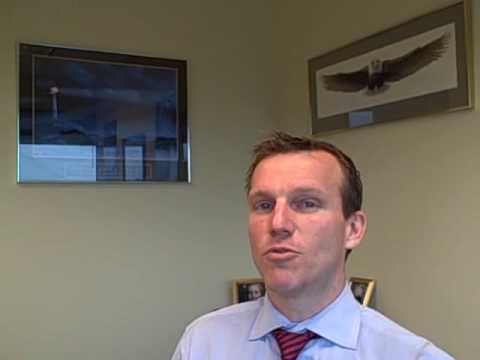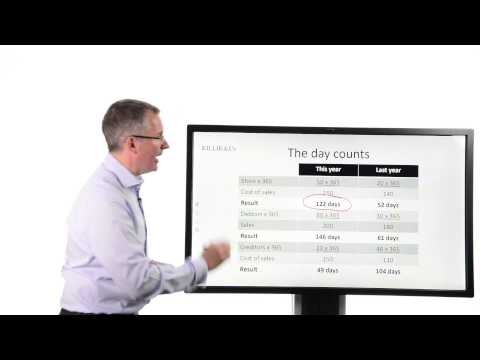Savers turn to ‘sin stocks’ in search of higher return for their cash
Post on: 27 Июнь, 2015 No Comment

Tobacco companies – the archetypal “sin stocks” – remain hugely popular among investors, despite regular warnings that profits will inevitably slide as more people quit smoking.
Last week Imperial Tobacco revealed, in its full year results, that sales had fallen again in many countries, but its share price still jumped. Why? Because cost-cutting meant the company, whose brands include Davidoff and Gauloises, will still have enough spare cash to raise its precious dividend payment to shareholders by at least 10%.
Years of rock-bottom interest rates have forced desperate savers and investors to take more risk in the hunt for higher returns on their cash. The British blue-chip companies that dominate the FTSE 100 index, such as Imperial Tobacco, have been the answer for many.
The average yield (the total annual dividend as a proportion of the share price) of the FTSE 100’s members, is currently 3.3%, while the FTSE All Share Index is yielding 3.1%. That’s double the interest rate paid on many bank and building society accounts.
Of course, investing in individual shares, even those of Britain’s biggest firms, carries considerably more risk than putting your cash in the bank. A bout of poor performance can lead to a collapse in share prices and a painful dividend cut. This summer Tesco, the second biggest grocer in the world, cut its dividend payment by 75%. This led to a collapse in its shares, which have more than halved in value over the past year.
Indeed, figures released from Capita, the consultant, showed that FTSE 100 dividends fell 1.1% year-on-year in the third quarter of this year, although dividends from medium-sized companies on the FTSE 250 rose 7.6%.
So which shares are a good bet for savers looking for income?
Graham Spooner, investment analyst at The Share Centre, likes National Grid, the infrastructure company, which is yielding 4.6%. “It’s one of our core holdings and it’s done very well recently. There have been growing political risks to the utilities sector, but National Grid will not be affected in the same way as a company like Centrica which owns British Gas. It also has a successful business in the US as well as the UK.”
He also suggests Royal Dutch Shell, the massive Anglo-Dutch oil major, which is yielding 5.3%. And he admits that the dividend yield on Imperial Tobacco is tempting at around 4.6%, though he couldn’t bring himself to invest in the shares.
James Maltin, investment director at Rathbones, warns that investors hunting for dividends need to consider whether a company is producing enough cash to pay a dividend not only this time around, but in the future as well. “You have to look beyond the dividend to see how it is derived, and the extent to which it has grown in the past, and to consider its prospects for the future.”
He suggests FTSE 250 companies Carillion, the British facilities and construction firm, which is yielding 5.3%, along with the housebuilder Berkeley Group, which is yielding 8%.
Meanwhile, Nicolas Ziegelasch, head of equity research at stockbroker Killik & Co, suggests esure, the car and home insurer, which is yielding 6.6%. “While the motor insurance industry has been suffering from the impact of premium declines due to increased competition, there are indications that pricing is now stabilising. We believe esure will continue to offer a high yield which should grow over time.”
He also tips HSBC, which is currently paying a dividend worth 4.6%. He says: “It is one of the few truly global banks, with a very strong business in Asia. With the post-financial crisis clean-up largely complete, it is in a good shape to benefit from a more normalised world.”
Too risky? Stick with equity income funds
Those who don’t have the stomach to gamble on individual shares could instead opt for a fund holding shares in dividend-paying companies. Investors poured 600m net into equity income funds in September, according to trade body the Investment Management Association.
Neil Woodford, the legendary fund manager, continued to prove a big draw after he went solo and launched his own income funds earlier this year. His CF Woodford fund is yielding 4%. Laith Khalaf at adviser firm Hargreaves Lansdown says: “Woodford is probably the UK’s most well-known retail fund manager. He is a contrarian manager, buying out-of-favour stocks and holding them for the long term.”
Almost a third of Woodford’s fund is invested in five companies: drugs giants AstraZeneca and Glaxo, BT, and two tobacco stocks, Imperial and British American Tobacco.
To provide some diversification, Jason Hollands of Bestinvest, another adviser firm, also suggests holding Unicorn UK Income fund, which derives 75% of its income from smaller companies. It is yielding 4.97%. Hollands says: “This fund, managed by Simon Moon and Fraser Mackersie at Unicorn Asset Management [a specialist small and mid-cap focused boutique], invests in a portfolio of predominantly smaller companies where the dividends are well covered by underlying earnings.”
Darius McDermott, managing director of FundCalibre, a fund rating website, suggests funds that use complex techniques to boost dividend payouts. “The Fidelity Enhanced Income Fund has an interesting process with few direct competitors. To enhance the yield of the portfolio, they will sell special contracts on certain portfolio stocks that pay them an income, in return for some of the potential capital growth. The historic annual yield has been 6.32%.”
Alternatively, go for bonds

A lower-risk alternative for income seekers are bonds – IOUs issued by governments and companies which offer a regular income to investors. However, huge demand has pushed up the price of these assets, pushing down yields.
McDermott suggests strategic bond funds, which give fund managers considerable freedom to exploit opportunities across global bond markets. He tips the Elite Rated Jupiter Strategic Bond Fund, which pays over 4%.
Some companies have started to issue debt directly to private investors in the form of “retail bonds”. These funds can carry attractive interest rates, but investors need to be aware of the risk that the company may become insolvent and be unable to pay them back.
The stockbroker Killik likes the Beazley 5.375% 2019 bond, issued by the global specialist insurance and reinsurance group. It currently trades at an offer price of 103.50, so it offers a gross redemption yield (the return investors would receive at the current price) of 4.6%. The firm also likes the Provident Financial 7% 2017 bond, issued by the lending and credit group. It currently trades with an offer price of 106.75 and offers a gross redemption yield of 4.6%.
How to go about it
Investors should hold shares and funds in a stocks and shares Isa, which allows them to save up to 15,000 a year tax-free.
You can build your own portfolio of shares or funds online without having to pay for financial advice by using a fund supermarket or share dealing website – known as platforms. Keeping administration fees low should be a priority, but it is also worth thinking about customer service, the usability of the site, and whether you want more tools and information or something basic.
When it comes to share dealing, platforms with a broking background are probably the first place to look, according to Mark Polson at The Lang Cat, a platform analyst. Based on regular dealing in a basket of stocks, Polson suggests AJ Bell Youinvest, Interactive Investor and The Share Centre.
However, dedicated investors who will be buying and selling shares regularly should go to IWeb, part of Lloyds Banking Group, which charges 5 a trade and little else. Polson says: “The website is very basic, but if you know what you’re doing then that might be a route.” For a portfolio of income funds worth more than 80,000, The Lang Cat suggests Alliance Trust Savings.
Polson says: “The fixed fees it charges don’t change with the value of your holding, so represent less and less of a proportional slice out of your pot as it grows.”
For smaller portfolios he suggests Charles Stanley, which charges 0.25% a year, or Fidelity, which charges 0.35%. Hargreaves Lansdown, the market leader, charges 0.45%.














